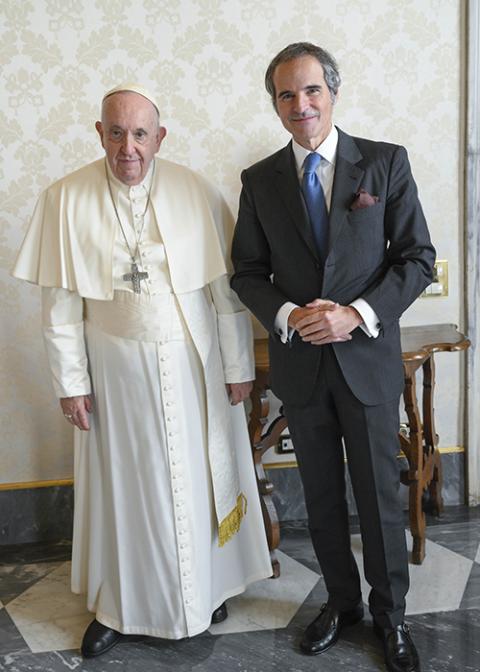Global politics often surprises us with unexpected alliances and diplomatic gestures. One of the most intriguing relationships in recent years has been the evolving connection between Russian President Vladimir Putin and Pope Francis. Their interactions have sparked discussions about faith, diplomacy, and global peace. This article delves into their meetings, public statements, and the implications these exchanges hold for international relations.
The relationship between Putin and Pope Francis represents a fascinating intersection of secular power and religious influence. While they come from vastly different worlds, their dialogue reflects shared concerns over global issues such as conflict resolution and humanitarian crises. The dynamics of their interactions offer insights into how leaders of different ideologies can collaborate for common goals. Below, we explore key moments in this relationship and its broader significance.
Pope Meets Putin: A Private Dialogue on Global Affairs
In July 2019, Russian President Vladimir Putin visited Pope Francis at the Vatican for a private meeting lasting 55 minutes. This encounter marked one of the most significant diplomatic engagements between the two leaders. During their discussion, they focused on pressing international affairs, including conflicts around the world and ways to foster peace through collaboration.
The meeting highlighted the potential for dialogue between political and religious figures to address global challenges. By engaging directly, both leaders demonstrated their commitment to resolving disputes diplomatically rather than through confrontation. Such high-level discussions underscore the importance of mutual respect and understanding in achieving peaceful resolutions.
This visit also reinforced the Vatican's role as a neutral mediator in geopolitical matters. As a spiritual leader advocating for peace and justice worldwide, Pope Francis continues to play an essential part in fostering constructive conversations among nations. His ability to engage with leaders like Putin illustrates the enduring relevance of religious diplomacy in modern times.
Rome to Moscow: An Invitation Yet Unfulfilled
Despite multiple invitations extended by Vladimir Putin, Pope Francis has not yet accepted an offer to travel to Moscow. This reluctance stems from various factors, including the complex nature of relations between the Catholic Church and the Russian Orthodox Church. Additionally, ongoing tensions due to Russia's actions in Ukraine may contribute to the hesitation surrounding such a visit.
However, Pope Francis expressed his willingness to meet with Putin in Moscow under appropriate circumstances. In an interview with Italian newspaper Corriere della Sera, he emphasized that he is ready to engage in dialogue if it contributes positively toward resolving conflicts or promoting peace initiatives. This openness indicates his dedication to pursuing opportunities for reconciliation wherever possible.
While the invitation remains unaccepted, it signifies the cautious optimism with which both parties approach each other. The possibility of future engagement keeps alive hopes for improved relations between Rome and Moscow, potentially paving the way for greater cooperation on shared interests related to global stability and human rights.
Strained Ties Amidst Conflict
Relations between Pope Francis and Moscow faced significant strain following Russia's invasion of Ukraine in early 2022. The Pope publicly criticized Patriarch Kirill, head of the Russian Orthodox Church, for supporting the war effort. This condemnation reflected the Vatican's firm stance against any justification of violence based on religious grounds.
Despite these challenges, efforts to maintain communication channels persisted. Pope Francis reiterated his belief that there exists no religious basis for justifying warfare, particularly when innocent lives are endangered. Through letters addressed to both Ukrainian and Russian nuncios, he urged continued prayers and dialogues aimed at ending hostilities.
These developments underscored the delicate balance required in navigating sensitive geopolitical landscapes while upholding moral principles. Even amidst adversity, both sides maintained avenues for potential reconciliation, demonstrating resilience and commitment to long-term peacebuilding efforts.
A Legacy Remembered: Putin Mourns Pope Francis
Upon hearing news of Pope Francis' passing, Russian President Vladimir Putin paid tribute to him as a defender of humanism and justice. In expressing condolences, Putin acknowledged the late pontiff's contributions toward fostering compassion, promoting peace, and advancing interfaith dialogue globally. These sentiments echoed widely across world leaders who celebrated Pope Francis' legacy rooted in humility and service.
Pope Francis left behind a profound impact characterized by unwavering advocacy for marginalized communities and relentless pursuit of social justice. His leadership inspired countless individuals to embrace values of empathy and solidarity regardless of cultural or religious differences. Through his actions and words, he exemplified what true leadership entails - courageously standing up for humanity amidst adversity.
As tributes poured in from all corners of the globe, including those from political adversaries turned mourners like Putin, it became evident how deeply revered Pope Francis was beyond traditional boundaries. His life served as a testament to transcending divisions through love and understanding, leaving behind an indelible mark on history books forevermore.

